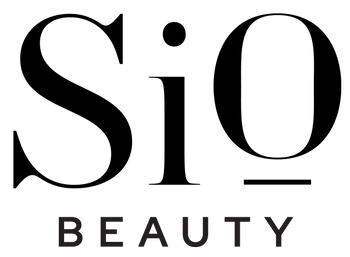How to Soothe Face Mask Irritation

Whether you’re working as a frontline health care worker or stepping out for a strategically planned grocery run, by now we’ve all come to accept face masks as part of our daily lives. But while the CDC has deemed face masks a crucial part in slowing down the spread of the coronavirus pandemic, that doesn’t mean that wearing one doesn’t come without its own set of side effects. Enter skin irritation, which rears its head in the form of face acne, redness, itchiness, rashes—the list goes on. Especially prevalent if your skin skews acneic or sensitive to begin with, mask acne—fittingly dubbed “maskne”—can stem from donning a face mask (or face covering) for an extended period of time. To help combat skin irritation on the face and fend off maskne for good, we’ve rounded up 7 effective tips below.
Why Am I Breaking Out After Wearing a Face Mask?
For starters, the combination of trapped air, oil, saliva, and sweat makes for a moisture-laden environment underneath your face mask. The result? Clogged pores that be the cornerstone of a breakout. What’s more, the constant rubbing of a face mask on your skin can cause friction-related chafing (think: rug burn). Then there’s the idea that the actual materials from your mask can cause contact dermatitis, an allergic reaction caused by direct contact with the allergen.
Face Covering Maintenance
Like other pieces of everyday clothing, face coverings require proper maintenance. It’s ideal to wash coverings after each wear, but if that’s not feasible to you and your lifestyle (we hear you), keep a rotation of face masks handy so you always have a fresh one to wear. Pop your cloth face masks in the wash on a hot cycle and toss out disposable surgical masks when they show visible signs of damage. And to reduce the risk of exacerbating pimples, make sure your hands are clean before putting on your mask and taking it off.
How Can I Prevent Future Face Mask Breakouts?
While face masks can be the source of skin irritation (and the frustration that often accompanies it), there are ways to fend off mask-related breakouts and protect your skin barrier.

Wash Your Skin
We know that cleansing the skin gets rid of the day’s dirt, oil, and impurities, but this rings especially true when it comes to the debris that’s caught underneath your face mask after a day of socially-distanced outings. This bacteria, if not washed away, is a breeding ground for breakouts. You should always make sure your face is cleansed before throwing on a face mask and after. If your skin leans oily or acne-prone, opt for a salicylic acid-based, gentle cleanser to clear clogged pores and help treat existing breakouts. And on days where you can’t get to a sink, keep cleansing wipes on hand for on-the-go maintenance.
Skip the Face Makeup
We know, we know. Beauty buffs everywhere are itching for an occasion to sport a dolled up ‘do, but for the sake of your skin, it’s best to save the glamorous makeup looks for your Zoom calls. As it stands, makeup can trap dirt and oil beneath the skin. Throw a face mask on top and it could be a recipe for face acne and clogged pores. If you must, we recommend choosing non-comedogenic makeup that’s oil-free and ideal for sensitive skin (mineral makeup works well here). Try to use this time as a way to hone down on your eye makeup skills (geometric eyeliner, anyone?).
Create a Barrier
A healthy dose of moisturizer doesn’t just make your skin appear fresh and glowy—it can keep your face clear of mask acne, too. That chafing we referenced earlier? It can be combatted with a layer of moisturizer. This creates a barrier and has the added bonus of being able to tackle other skin issues you’re dealing with. Parched skin? Go for a moisturizing hyaluronic-acid based formula. Oily to no end? Choose a lightweight gel lotion containing ceramides. And if you’re sensitive, a fragrance-free formula will be your best bet.
Apply an Overnight Treatment
Between laugh lines and parched lips, the skin around the mouth is already dealing with a lot. Face coverings, in particular, can make the skin feel dehydrated, sweaty, and anything but smooth. Because skin does most of its repairing while you catch some zzz’s, overnight treatments can help reveal a fresher complexion come morning. Take advantage of the time your face is unmasked by dousing it with skin-nourishing serums or treatments like the SiO Beauty Eye and Smile SuperLift Pack or Super LipLift, which consists of medical-grade silicone patches to rehydrate and smooth out the delicate mouth area, as well as target fine lines and wrinkles.
Avoid Face Picking
Facial picking and touching can be a real method of COVID-19 transmission, according to the CDC and the World Health Organization. What’s more, this unhealthy habit can lead to redness, skin irritation, and even scarring later on down the road. Combined with face masks, face picking is a hotbed for bacteria and germs, and a surefire way for them to turn into pimples on your face. Whether it’s done out of boredom, stress, or nervousness, you can train yourself to stop this bad habit altogether by finding a competing response (stress balls help) or clenching your fists.
Upkeep Your Skincare Routine
With self-quarantining and limited activity comes the opportunity to spend some time leveling up on your skincare routine. Cue charcoal-based clay masks, which has some serious healing benefits for skin that’s always covered up by a face mask. Clay is a skin-repairing ingredient that’s touted for being able to draw out oil, impurities, and clogged pores, as well as help skin look clearer and more balanced overall. One caveat: these types of clay masks can be dehydrating (especially in those with dry skin), so limit use to one to two times a week, or as needed.
Visit Your Dermatologist
If at-home treatments simply aren’t cutting it, or you notice some irreversible damage forming, it may be time to pay your dermatologist a visit. Most are using telemedicine as a way to consult with patients, or you can schedule an in-person appointment if your skin really isn’t responding. Either way, know that there are solutions to mask-related acne and skin irritation on the face—whether it involves a pro or not.
Closing
Let’s face it: Our new normal looks a lot different than it used to. And though face masks are essential for everyone’s health and safety, that doesn’t mean your skin has to suffer. Wash your face (and your hands) consistently, avoid face makeup, clean your cloth masks, and use the right skincare products. With these tips and a little more TLC than usual, your skin will be equipped with everything it needs to stay healthy and free from breakouts.

